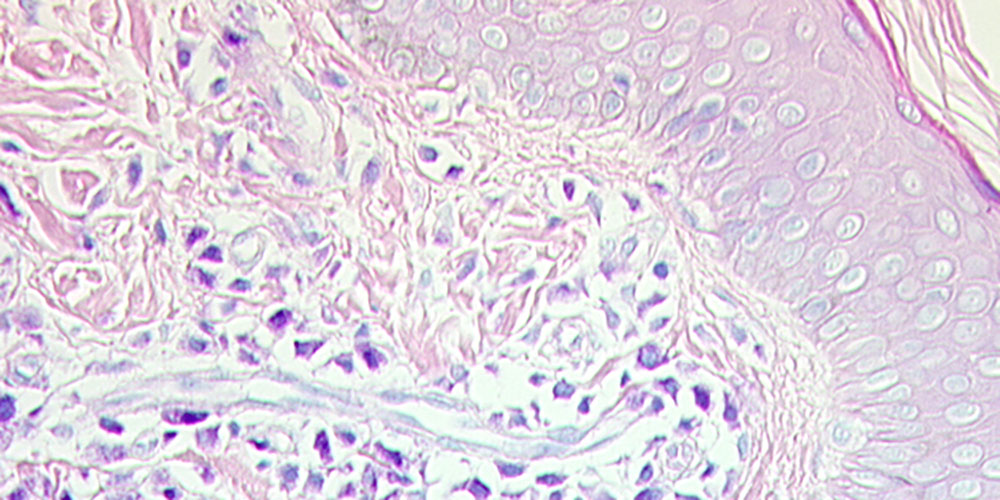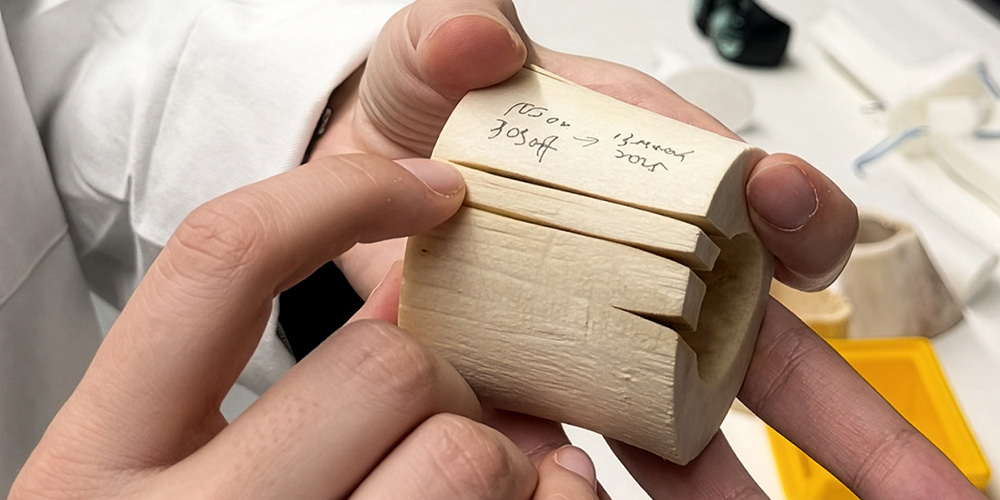Mastocytosis drug improves symptoms and quality of life
From itching, abdominal pain and exhaustion to unconsciousness: the drug midostaurin can help alleviate these symptoms and improve quality of life in patients with mastocytosis. This has been proven by a research group at the University of Basel. Their findings have been published in the Journal of Allergy and Clinical Immunology.
21 May 2020
Spots on the skin, itching, abdominal cramps and exhaustion – these are some of the symptoms of mastocytosis, which affects an estimated 1,000 to 2,000 people in Switzerland. This disease is caused by a mutation that auto-activates certain immune cells, named mast cells. As a result, these cells continuously produce mediator substances (mast cell mediators) like histamine and cytokines, and accumulate in organs such as the skin and bone marrow.
The drug midostaurin, which blocks the effects of the mutation, was recently approved for use against advanced forms of this disease. However, these severe forms account for only 10 to 20 percent of those affected. For the majority of patients who also suffer from severely limiting symptoms, there has been no specific treatment available to date.
Also for non-advanced forms
An international study with participation of Prof. Dr. Karin Hartmann, Leader of the Research Group “Allergy and Immunity” at the Department of Biomedicine of the University of Basel and Head of Allergy at the University Hospital of Basel, now indicates that midostaurin could also be beneficial for patients with non-advanced forms of mastocytosis who mainly suffer from mediator symptoms.
Hartmann and her colleagues used data from 116 patients with advanced mastocytosis from an earlier study from 2016, which had shown that midostaurin reduced the accumulation of mast cells in different organs and improved organ function. The approval for advanced forms of the disease is based on these findings.
However, symptoms such as itching, hot flushes and abdominal pain are not triggered by increased cell numbers alone, but mainly by the oversupply of their mediator substances. "Whether the drug also alleviates mediator symptoms and quality of life has not yet been evaluated in detail," explained Hartmann. It would be important to prove this in order to understand whether midostaurin – and in the future possibly also other drugs with the same target – could also be helpful for patients who suffer primarily from mediator symptoms.
Midostaurin alleviates mediator symptoms
The results of the study published in the Journal of Allergy and Clinical Immunology give hope in this respect: the various mediator symptoms decreased significantly. In addition, the subjectively perceived quality of life of the patients improved, as the evaluation of standardized questionnaires showed. This effect persisted even during three years of treatment with midostaurin.
Although the number of study participants was relatively small, Hartmann emphasized that – since this is a rare disease and only a few of those affected suffer from advanced forms of mastocytosis – such a large group of patients with advanced mastocytosis had never been examined before. "We hope that our results will provide an impetus to investigate midostaurin and other drugs with the same target in further studies in patients with mediator symptoms."
Original Source
Karin Hartmann, Jason Gotlib, Cem Akin, Olivier Hermine, Farrukh T. Awan, Elizabeth Hexner, Michael J. Mauro, Hans D. Menssen, Suman Redhu, Stefanie Knoll, Karl Sotlar, Tracy I. George, Hans-Peter Horny, Peter Valent, Andreas Reiter, Hanneke C. Kluin-Nelemans
Midostaurin improves quality of life and mediator–related symptoms in advanced systemic mastocytosis
The Journal of Allergy and Clinical Immunology (2020), doi:10.1016/j.jaci.2020.03.044
Further information
Prof. Dr. Karin Hartmann, University of Basel/University Hospital Basel, Department Clinical Research, phone: +41 61 265 23 51, email: k.hartmann@unibas.ch



